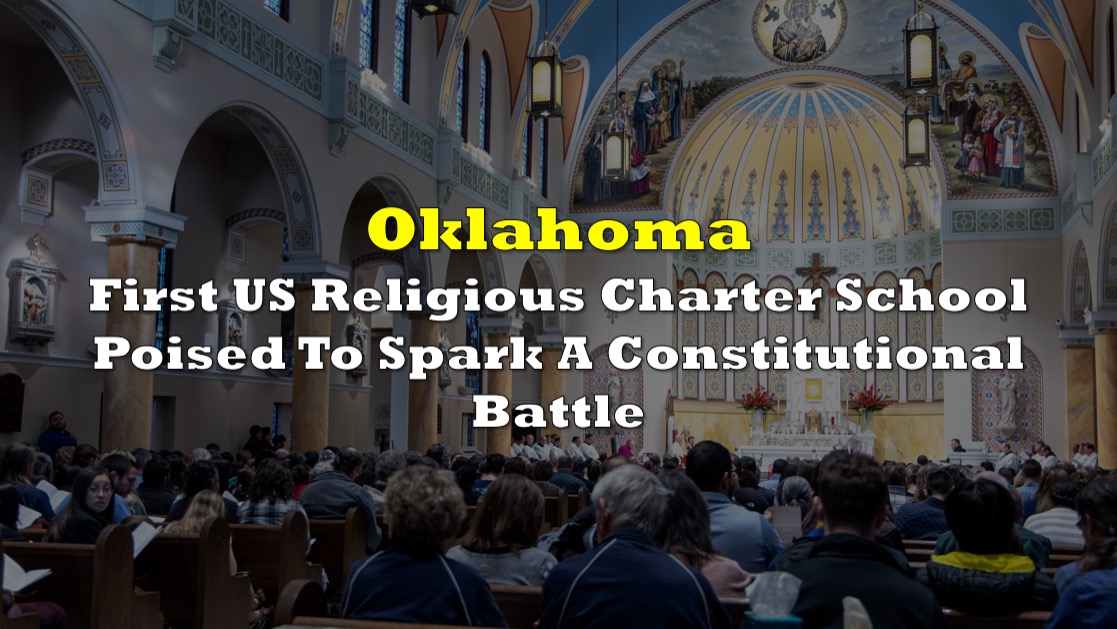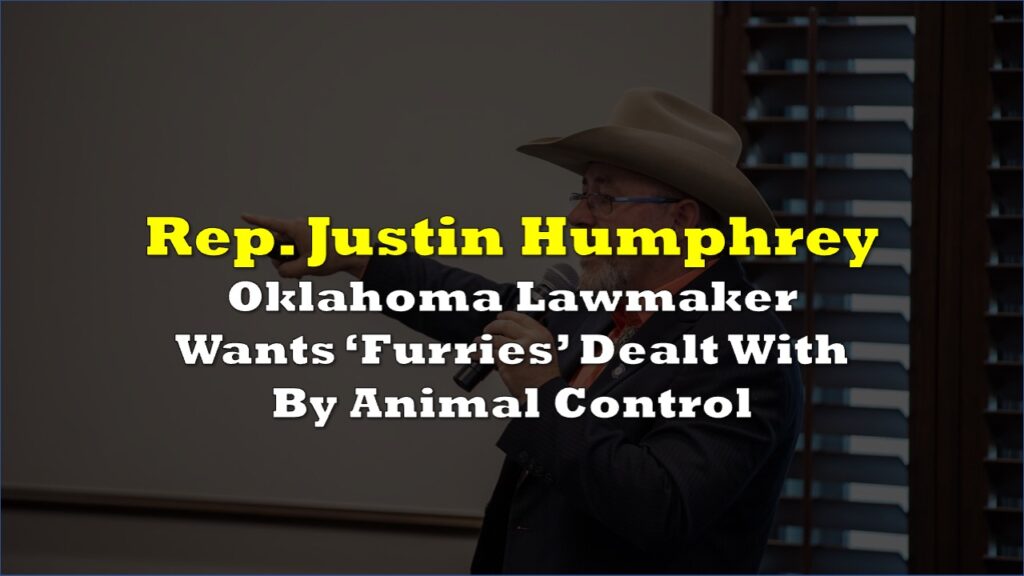In a groundbreaking move, Oklahoma has approved the establishment of the first religious charter school in the United States, creating a significant victory for Christian conservatives. However, this decision has also opened the door to a fierce constitutional battle regarding the use of taxpayer dollars to fund religious schools directly.
Named St. Isidore of Seville Catholic Virtual School, this online institution will be administered by the Roman Catholic Archdiocese of Oklahoma City and the Diocese of Tulsa. The school’s curriculum will incorporate religious teachings, aligning with its Catholic affiliation. What sets this charter school apart is that it will be funded by taxpayer dollars, despite being classified as an independently managed public school.
The approval of St. Isidore came after a lengthy three-hour meeting by the Oklahoma Statewide Virtual Charter School Board, despite concerns raised by the board’s legal counsel. The decision passed with a 3-to-2 vote, including support from a member who was newly appointed on Friday. The board comprises appointees by Governor Kevin Stitt, a Republican known for his backing of religious charter schools, as well as leaders from the Republican-controlled State Legislature.
This landmark decision sets the stage for a high-profile legal battle concerning the separation of church and state in education. It arrives at a time when various aspects of public education are already being challenged. Republican lawmakers, including those in Oklahoma, have been increasingly advocating for alternatives to public schools, such as vouchers and tax credits. These alternatives aim to provide subsidies to parents, assisting them in covering private tuition expenses, often incurred by attending religious schools.
Public tax dollars going towards a charter school that will be embedding heavy amounts of religion into the curriculum. Imagine the public reaction if this was literally any other religion besides Christianity https://t.co/OGR2tcw6sa
— Tyler (@HeckTyIer) June 5, 2023
While some government funding already reaches religious schools, St. Isidore would be the first school fully financed by the government. This development has prompted Americans United for Separation of Church and State to announce their intention to take legal action against the decision, citing it as a violation of the religious freedom of Oklahoma taxpayers and public-school families.
Rachel Laser, the president and chief executive of Americans United for Separation of Church and State, asserted, “This is a sea change for American democracy.” In contrast, Brett Farley, the executive director of the Catholic Conference of Oklahoma, welcomed the forthcoming legal challenge. He pointed out recent U.S. Supreme Court rulings that have signaled support for directing taxpayer money to religious schools. Farley expressed his belief that the approval of St. Isidore is a victory for parents, school choice, and religious liberty.
In pivotal Supreme Court rulings in 2020 and 2022, it was determined that religious schools should not be excluded from state programs that enable parents to enroll their children in private schools through government-financed scholarships or tuition programs. Chief Justice John G. Roberts Jr. wrote that while supporting religious education was not obligatory for states, if a state chose to subsidize any private schools, it could not discriminate against religious institutions.
Oklahoma’s supporters of St. Isidore employed similar arguments, contending that excluding religious schools from charter funding violated the First Amendment’s protection of religious freedom. The decision faced opposition from various groups, including pastors, religious leaders, advocates for public schools, and members of the charter school movement.
Nina Rees, the chief executive of the National Alliance for Public Charter Schools, expressed her opposition, stating, “The Archdiocese of Oklahoma City is trying to make charter schools into something they are not.”
Charter schools, which emerged in the 1990s, are public schools funded by taxpayer money. They were intended to offer innovative and flexible educational options, allowing students to enroll regardless of their school zone. As of 2020, charter schools accounted for approximately 8 percent of public schools in the United States.
The classification of charter schools as either “state actors,” representing the government, or “private actors,” akin to government contractors, is a critical legal question. This question is central to another case from North Carolina that the Supreme Court is currently considering.
The Oklahoma Statewide Virtual Charter School Board faced intense political pressure leading up to the decision. During the meeting, board chairman Robert Franklin expressed his concerns, stating, “This is uncharted territory,” before ultimately voting against the approval of the school.
While Governor Stitt praised the board’s “courage” and hailed the decision as a win for religious liberty and education freedom, the newly elected Republican attorney general, Gentner Drummond, expressed disappointment. He criticized the board members for violating their oath by using taxpayer dollars to fund religious schools.
even our Republican Attorney General knows this was a bad move–> https://t.co/v1Ihv9iLNo pic.twitter.com/Hl0QpwZfzl
— Weed💚& Soup🍲&Books☭📚 (@soonerthann0w) June 5, 2023
Currently, Oklahoma has approximately two dozen charter schools, with many students receiving their education online. St. Isidore, named after the patron saint of the internet, is scheduled to open no earlier than the fall of 2024. It plans to offer online classes to approximately 500 students from kindergarten through 12th grade.
Information for this briefing was found via the The New York Times and the sources mentioned. The author has no securities or affiliations related to the organizations discussed. Not a recommendation to buy or sell. Always do additional research and consult a professional before purchasing a security. The author holds no licenses.






